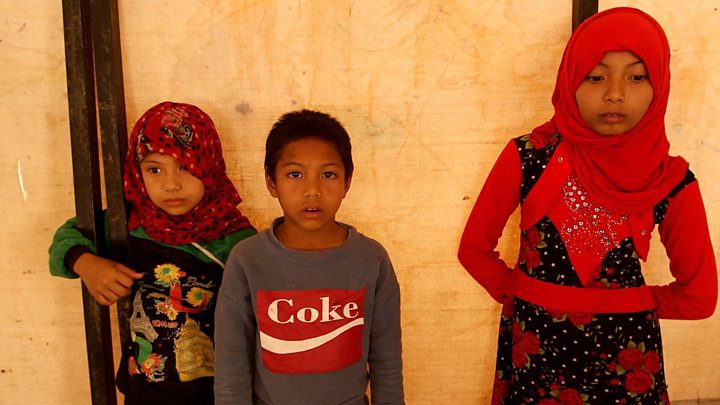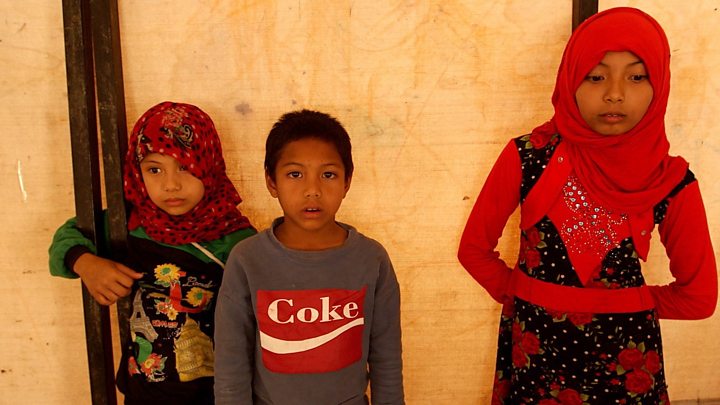‘Islamic State’ children: How do they get home?
Returning foreign children from detention camps in Syria involves legal and political obstacles. …


Media playback is unsupported on your device
The case of three children believed to be from the UK, trapped in Syria after their parents joined the “Islamic State group” and subsequently died, has raised questions about how they can be repatriated.
The children, Amira, Heba and Hamza, were featured in a recent BBC report from a Syrian camp for the families of IS fighters.
So what’s the procedure for repatriating them – and what are the difficulties?
Diplomatic access
The camps in northern Syria holding IS families are currently controlled by Kurdish-led forces whose leaders have repeatedly asked European countries to take back their nationals.
Many countries have been reluctant to readmit IS supporters both because of public opinion and legal issues.
Foreign nationals abroad are entitled to some form of consular assistance and this would normally require direct contact with those being held in the camps.
However, this is complicated by the fact that many countries have closed their embassies in Syria.
Some countries have also made clear that they believe it’s too dangerous to send their officials into a war zone.
As the conflict escalates in northern Syria, the levels of insecurity in and around the camps makes this an increasing problem.
Australia said recently it wouldn’t take the risk of sending in people to rescue children.
“It is a very dangerous area. We will not be endangering the lives of other Australians. It’s that simple,” said Foreign Minister Linda Reynolds.
Establishing the right to return
If diplomatic officials do succeed in establishing contact, the next stage is to establish the legal parenthood and nationality of the child.
But this can be complicated if
- the parents’ identity documents no longer exist
- the child was born to parents from two different nationalities
- the child is an orphan with no adult established as a legal guardian
- there is no access to DNA testing facilities to establish parenthood
In the UK, very few foreign children have been repatriated – or at least recorded as having been returned.
In a report in July, King’s College’s International Centre for the Study of Radicalisation said only four children had returned to the UK, but also pointed out that this figure might not accurately represent the true number.
In February, the then UK Home Secretary, Sajid Javid, told parliament he had sympathy for innocent children caught up in a war zone.
But he added: “If we were to do more to try to rescue these children, we have to think about what risk that places on future children in the UK and the risk that they may be taken out to war zones by their parents.”
In the case of Shamima Begum, who was deprived of UK citizenship to prevent her return, the government indicated that her child born earlier this year would remain British.
But the child died in a Syrian refugee camp when he was less than three weeks old.
Afterwards, the UK government said it would have been too dangerous to send officials into the camp where Shamima Begum was detained to bring the child out.
Repatriation to other countries
A number of children have been repatriated from other countries.
Russia has brought back between 145 and 200 on organised flights.
Several central Asian states have also taken back children.
In May, Kazakhstan organised the return of more than 230 of its citizens – most of them children – from camps in Syria.
Austria agreed to take back two orphaned children recently following DNA tests and a court ruling on who would take custody of the children once they returned.
Germany has also taken back children, as have France, Belgium, Sweden and Norway.
These cases usually require much co-ordination involving the Kurdish-led forces controlling the camps, as well as others who might be needed to facilitate the logistics, such as the Iraqi government, the Red Cross and other international agencies.




